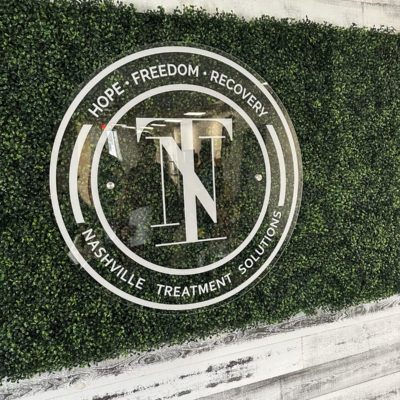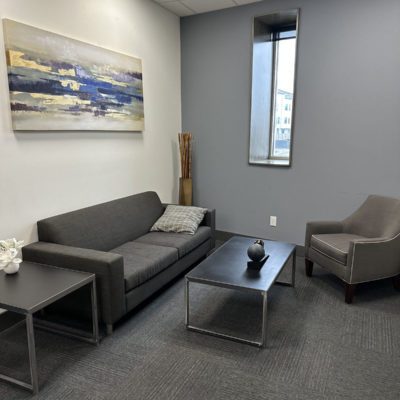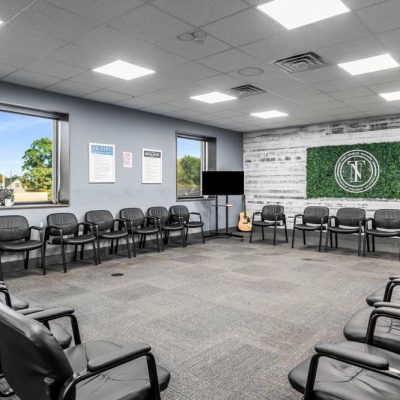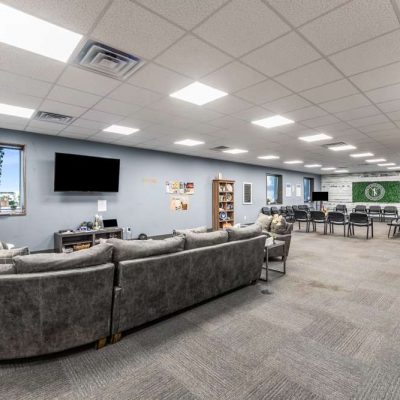PTSD Treatment in Nashville, TN
At Nashville Treatment Solutions created a trauma program that helps people who have post-traumatic stress disorder (PTSD) and other trauma-based mental health disorders. At our PTSD treatment program, we understand how to handle each person with compassion and help empower them to overcome the past. When someone undergoes a traumatic event, it can take a long time to heal. For some, what happened becomes so impactful that they need professional help to deal with it.
You are not alone. You deserve to get help.
Nashville Treatment Solutions is an industry leader in addiction treatment. Our team of top medical experts specialize in dual diagnosis treatment and are committed to ensuring that each patient is treated as an individual. Call us today, we’re available 24/7.
What is PTSD?
Posttraumatic Stress Disorder (PTSD) is a mental health condition triggered by experiencing or witnessing a terrifying event. This could be a natural disaster, a severe accident, a terrorist act, personal assault, war or other serious incidents. Individuals with PTSD often relive the traumatic event through intrusive thoughts, nightmares, and flashbacks, and they may experience feelings of isolation, irritability, and guilt.
Symptoms are typically grouped into four main categories: intrusive memories, avoidance behaviors, negative changes in thinking and mood, and changes in physical and emotional reactions. For a diagnosis of PTSD, these symptoms must last for more than a month and must significantly interfere with daily life and functioning. PTSD is a severe and ongoing emotional reaction to extreme psychological trauma. Although anyone can develop PTSD at any age, factors like having experienced intense or long-lasting trauma, having other mental health problems, or having a family history of mental health problems can increase the risk. Effective treatment, such as psychotherapy and medications, are available and can help people recover from PTSD and regain control of their lives.
What to Look For
Signs and Symptoms of PTSD
For a diagnosis of PTSD, these symptoms should last for more than a month and cause significant distress or impairment in social, occupational, or other important areas of functioning. It’s also important to note that not everyone who experiences a traumatic event will develop PTSD. Some people might develop symptoms that go away after several weeks, while others may have long-term effects.
- Intrusive thoughts: such as repeated, involuntary memories, distressing dreams, or flashbacks of the traumatic event. Flashbacks may be so vivid that people feel they are re-living the traumatic experience.
- Avoiding reminders: This could involve avoiding people, places, activities, objects, and situations that bring on distressing memories. People may try to avoid remembering or thinking about the traumatic event, and may resist talking about what happened or how they feel about it.
- Negative thoughts and feelings: These could include ongoing and distorted beliefs about oneself or others (like "I am bad," "No one can be trusted"); ongoing fear, horror, anger, guilt, or shame; much less interest in activities previously enjoyed; feeling detached or estranged from others; or feeling emotionally numb.
- Arousal and reactive symptoms: These can be irritability, angry outbursts, being recklessly or self-destructively behavior, being easily startled, having problems concentrating or sleeping, or being overly watchful or on guard.
How Do I Know I Need PTSD Treatment?
Recognizing the need for PTSD treatment is an important step towards recovery. Here are some signs and symptoms that might indicate you need treatment for PTSD:
Re-experiencing the traumatic event: This may include having intrusive thoughts, flashbacks, or nightmares about the event. You might find yourself frequently reliving the event in your mind, often in great detail.
Avoidance: You may go out of your way to avoid places, people, or things that remind you of the traumatic event. This could also include trying to avoid thinking or talking about the event.
Negative changes in thoughts and mood: This might involve feelings of hopelessness about the future, negative thoughts about yourself or the world, and memory problems, including not remembering important aspects of the traumatic event. You might also feel detached from others, lack interest in activities you once enjoyed, and struggle with feelings of emotional numbness.
Hyperarousal: Symptoms can include being easily startled, feeling on edge, having difficulty sleeping, and having angry outbursts.
Significant distress or impairment: You’re experiencing significant distress in your social life, work, or other areas of functioning.
If you’ve been experiencing any of these symptoms for over a month, especially if they’re severe enough to disrupt your daily call Nashville Treatment Solutions today. Also, if you’re having thoughts of harming yourself or others, it’s important to seek help immediately.
HOW OUR TAILOR-MADE TREATMENT PLANS WORK
What to Expect During PTSD Treatment in Nashville
When someone admits to our PTSD treatment in Nashville, they begin by talking to an admissions counselor. A discussion will take place about the nature of the particular trauma that happened and what treatment goals the individual would like to set. From there, a customized treatment plan is created. The person will attend several types of therapies that help them come to terms with their trauma and learn how to overcome its effects.
Trauma-informed therapy helps lay the groundwork for healthy healing and learning to manage triggering emotions and events. Some therapy takes place one-on-one, while others happen in a group therapy setting. The different types of therapy used during treatment include:
OUR TAILOR-MADE APPROACH
Benefits of PTSD Treatment in Nashville
Attending PTSD treatment in Nashville provides people with different kinds of benefits. It helps people manage their symptoms and regain control of their lives. When someone achieves this, they feel equipped to function better in their everyday life. Other benefits many people experience include improved self-esteem and reduced feelings of anxiety and depression. When symptoms of trauma are dealt with in professional treatment, it’s common for people to report better sleep patterns, healthier relationships, and improved performance on the job or in school.
The Correlation Between Addiction and Trauma
There is a significant correlation between Post-Traumatic Stress Disorder (PTSD) and addiction, with research indicating that individuals with PTSD are at a greater risk for developing substance use disorders. This can occur for a variety of reasons:
Self-Medication: People with PTSD often experience distressing symptoms such as recurrent, intrusive memories of the traumatic event, heightened anxiety, and emotional numbness. In an attempt to cope with these distressing symptoms, some may turn to alcohol or drugs in an effort to self-medicate, to escape or numb these feelings.
Vulnerability: The experience of trauma and the resultant PTSD can leave individuals emotionally vulnerable. This vulnerability may make some more prone to substance use as a means to manage their emotional state.
Biology: There’s also a biological aspect to the link between PTSD and substance use. Both conditions affect similar areas of the brain, particularly those related to fear, stress, and reward. This can create a vicious cycle where substance use exacerbates PTSD symptoms, which then leads to further substance use.
The dual diagnosis of PTSD and addiction can make treatment more complex, but it’s not insurmountable. Integrated treatment approaches, where both conditions are treated concurrently, have been found to be most effective. This might involve a combination of cognitive-behavioral therapy, exposure therapy, medication, and self-care strategies. If you or someone you know is dealing with these issues, it’s important to seek help from professionals who are experienced in treating both conditions.
GET IN TOUCH WITH OUR TRAINED TEAM
Begin Effective PTSD Treatment in Nashville, Tennessee
Regardless of when trauma happens in someone’s life, it can cause a ripple effect that lasts for years or even decades. When this happens, it takes a professional therapeutic program to help people move past it. Nashville Treatment Solutions works with people on an outpatient basis to help them truly process what happened to them and learn to move past it in a healthy way. Our PTSD Treatment in Nashville offers expert therapists who are trained to treat the challenges of trauma-based illness. We can also provide medications to help ease symptoms such as anxiety and depression.
Do you want to know more about how to put trauma behind you and enjoy a life not ruled by fear? Visit our admissions page now and let our admissions staff help you understand your options.












